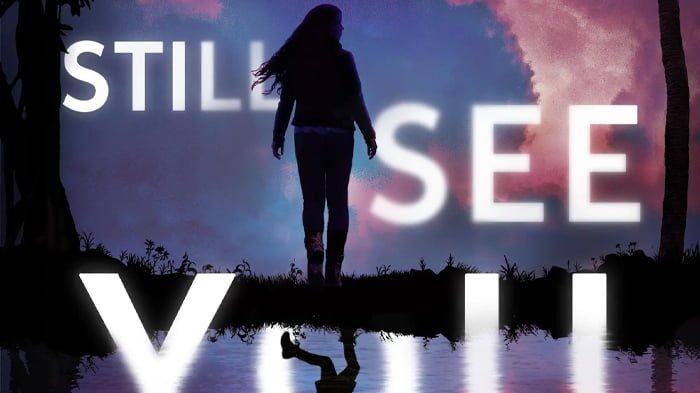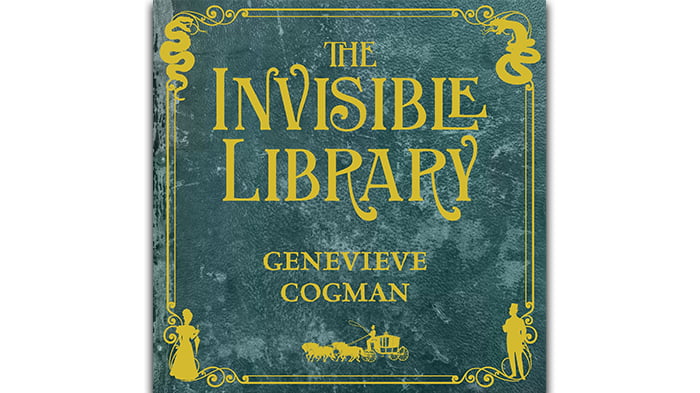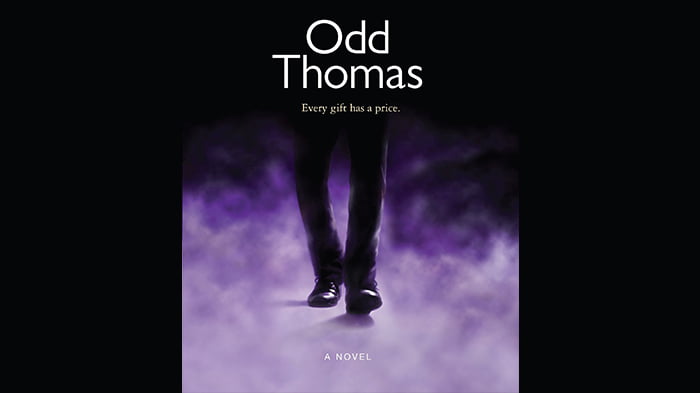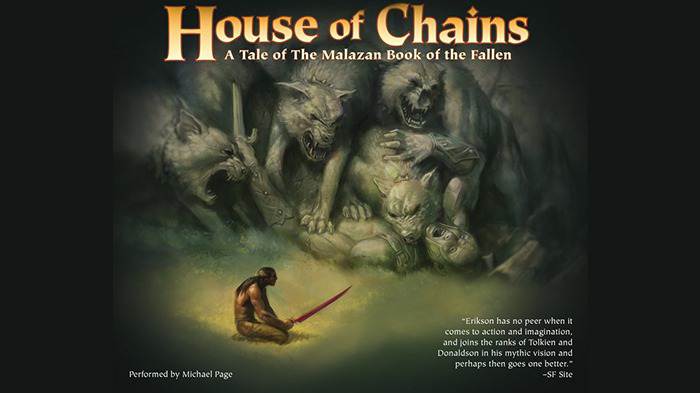Shield of Sparrows: A Romantasy Revolution Where Forgotten Princesses Forge Their Own Crowns
From Hollywood Dream to Romantasy Reality
The buzz surrounding Devney Perry’s “Shield of Sparrows” has reached fever pitch with Amazon MGM Studios’ announcement of a feature film adaptation and Derek Kolstad—the mastermind behind the “John Wick” franchise—attached to pen the screenplay. This unprecedented pre-publication Hollywood interest signals that Perry has crafted something extraordinary: a romantasy that transcends genre boundaries while delivering everything devoted fans crave.
In a literary landscape dominated by Sarah J. Maas and Rebecca Yarros, Perry emerges with a voice that honors romantasy traditions while shattering expectations. “Shield of Sparrows” promises slow-burn romance amidst high-stakes adventure, where a forgotten princess’s transformation into an unlikely warrior challenges not just mortal kings but the very gods who demand submission.
The Divine Cruelty That Shapes Five Kingdoms
When Gods Weaponize Fear
Perry’s worldbuilding begins with a chilling premise: gods who maintain control through monsters rather than miracles. These deities don’t seek worship through love or wisdom but through terror, sending creatures to ravage the five kingdoms whenever mortals forget their place. This theological tyranny creates a universe where faith becomes synonymous with fear, and survival depends on perfect submission.
The brilliance of this concept lies in its layered implications. These aren’t distant, indifferent gods but active oppressors who view mortal suffering as acceptable teaching tool. Every monster attack serves as divine reminder that resistance brings destruction, that questioning brings catastrophe. Perry transforms traditional fantasy theology into commentary on systemic oppression, where those in power maintain control through calculated violence.
Five Kingdoms United in Terror
The five kingdoms structure suggests diverse responses to shared oppression. While united in their fear of divine retribution, each realm likely developed unique survival strategies. Some might embrace extreme orthodoxy, creating rigid hierarchies that mirror divine cruelty. Others perhaps maintain surface compliance while harboring seeds of rebellion. This variety provides rich backdrop for political intrigue and cultural exploration.
Perry uses the kingdom structure to examine how oppression shapes different societies. The shared threat of monsters creates common ground between kingdoms that might otherwise conflict, yet also prevents true unity—divided peoples cannot challenge divine authority. This fractured landscape becomes both obstacle and opportunity for our protagonist’s journey.
The Forgotten Princess: Invisible by Design
A Life Lived in Shadows
Our narrator describes herself as forgotten, and Perry loads this designation with meaning. In a world of five kingdoms, being forgotten suggests deliberate erasure rather than simple oversight. Perhaps she’s a political inconvenience, a reminder of alliances better left unmentioned, or simply deemed too insignificant for attention. This invisibility shapes her entire existence, creating someone who’s learned to survive by not being seen.
The psychological impact of being forgotten within your own family, your own kingdom, creates fascinating character depth. She’s internalized her insignificance so completely that she genuinely believes she was “never meant to rule” and “never meant to fight.” This learned helplessness becomes her cage—one that requires no locks because she doesn’t believe escape is possible.
The Weight of a Crown Never Worn
As a princess whose “only duty is to wear the crown and obey,” our protagonist embodies ornamental existence. She’s valuable as symbol rather than person, important for what she represents rather than who she is. Perry captures the particular suffocation of being royal but powerless, where privilege comes with chains disguised as jewelry.
This starting point makes her eventual transformation more powerful. She doesn’t begin as secretly strong princess waiting for opportunity but as someone who truly believes in her own limitations. Her journey to warrior requires not just learning new skills but fundamentally reconceptioning her own identity and capabilities.
The Fateful Throne Room: Where Everything Shatters
Three Arrivals That Change Everything
Perry constructs her inciting incident with mathematical precision. Three elements converge in that throne room: our protagonist stepping into a space where she doesn’t belong, a legendary monster hunter arriving with promise of change, and a prince whose actions will ruin her life. Each element alone might be manageable, but together they create perfect storm that destroys her carefully maintained invisibility.
The throne room setting carries symbolic weight. This space of power and decision-making has likely been forbidden to her—forgotten princesses don’t belong where kingdoms’ fates are decided. By stepping into this arena, she unknowingly crosses a boundary that cannot be uncrossed. Her physical entry into the throne room parallels her entry into the larger political game she’s been excluded from.
Blood Treaty: The Price of Peace
The revelation that she “sealed an ancient treaty with her own blood” transforms political maneuvering into visceral violation. Blood magic in fantasy carries primal power—it’s life force made tangible, identity made liquid. By using her blood to seal others’ agreement, the kingdom literally commodifies her existence, turning her body into political currency.
This blood treaty likely connects to the arriving prince, suggesting arranged marriage sealed with supernatural binding. Perry elevates the arranged marriage trope by adding magical compulsion—this isn’t just social pressure but mystical obligation. The protagonist becomes trapped not just by duty but by magic itself, raising stakes for any potential rebellion.
The Monster Hunter: Legend Meets Reality
Defying Divine Decree
In a world where gods send monsters as punishment, someone who hunts these creatures commits ultimate heresy. The legendary monster hunter represents living blasphemy—proof that divine instruments can be opposed, that mortal skill might match immortal cruelty. His arrival sends ripples through kingdoms built on foundation of fearful compliance.
Perry likely uses this character to embody active resistance in contrast to our protagonist’s learned passivity. Where she’s been taught to kneel, he stands and fights. Where she accepts divine cruelty as unchangeable reality, he treats it as challenge to overcome. His very existence suggests alternatives to submission she never imagined possible.
Catalyst for Revolution
The monster hunter’s presence forces kingdoms to confront uncomfortable truths. If monsters can be killed, why do they accept them as inevitable? If one mortal can defy divine will, what excuse do kingdoms have for compliance? His arrival doesn’t just threaten individual monsters but the entire system built on accepting them as unbeatable.
For our protagonist, meeting someone who actively fights what she’s been taught to fear plants seeds of possibility. Even if she initially rejects his approach, his existence proves that resistance—however dangerous—remains option. This living example of defiance becomes crucial to her eventual transformation.
The Prince Who Ruins Everything
Political Weapon in Human Form
The prince who ruins our protagonist’s life likely represents everything wrong with the system trapping her. His ability to destroy her existence with arrival suggests enormous power disparty—he matters in ways she doesn’t, commands attention she lacks, makes decisions she cannot influence. Perry creates antagonist who embodies systemic inequality rather than personal evil.
The specific nature of his life-ruining actions likely connects to the blood treaty. Perhaps he’s the unwanted husband she’s magically bound to, the political alliance that tears her from whatever small freedoms she’s carved out. His casual destruction of her life reflects how powerful men in patriarchal systems can reshape women’s existences without consideration or consequence.
From Destroyer to Companion
The revelation that this same prince becomes the warrior she must travel beside creates delicious narrative tension. Perry forces proximity between destroyer and destroyed, requiring them to cooperate despite mutual loathing. This setup promises exploration of how understanding doesn’t equal forgiveness, how shared danger might create unwilling alliance without erasing grievance.
Their paired journey likely serves multiple functions. Politically, it might fulfill the treaty requirements. Personally, it forces both to see beyond initial roles—she must recognize the person beneath the prince, while he must acknowledge the human he’s harmed. This forced reconsidering of each other becomes fertile ground for the enemies-to-lovers romance.
The Journey: Through Treacherous Lands and Hearts
External Dangers Mirror Internal Struggles
The treacherous lands our protagonists must cross provide perfect external expression of internal turmoil. Perry uses landscape as emotional barometer—when trust fractures, perhaps paths become more dangerous; as understanding grows, maybe ways become clearer. The physical journey creates structure for emotional development while providing action and adventure romantasy readers expect.
These dangerous territories likely harbor more than natural threats. In a world where gods send monsters, any wilderness might hide divine punishment. Every day of travel risks encountering creatures designed to remind mortals of their place. This constant danger forces cooperation between reluctant companions while providing opportunities for each to prove their worth.
Forced Partnership’s Psychological Toll
Traveling beside someone you despise while bound to future you didn’t choose creates unique psychological pressure. Perry explores how proximity without privacy, danger without trust, and forced cooperation without friendship affect both characters. They must rely on each other for survival while maintaining emotional walls that protect against further harm.
This dynamic creates perfect conditions for slow-burn romance. Every small gesture of support carries weight when offered by an enemy. Each moment of unexpected kindness or revealed vulnerability chips away at carefully maintained hatred. Perry can build their connection through accumulated actions rather than sudden revelations, making eventual romance feel earned.
Everyone’s Expectations: The Weight of Others’ Dreams
Queen, Spy, Sacrifice
The competing demands placed on our protagonist—to be queen, spy, or sacrifice—reveal how others view her as tool rather than person. Each role serves someone else’s agenda while denying her agency. The queen role likely comes from those who need political figurehead. Spy suggests someone wants to use her proximity to power for intelligence gathering. Sacrifice implies some view her as expendable resource for greater good.
Perry uses these competing expectations to explore how external pressures shape identity. When everyone tells you who to be, discovering who you actually are becomes revolutionary act. The protagonist must navigate between these imposed identities while searching for authentic self beneath others’ projections.
The Exhaustion of Performance
Living up to others’ expectations requires constant performance, and Perry captures the exhaustion this creates. Our protagonist has spent lifetime being what others need—obedient daughter, forgotten princess, political pawn. The journey forces her away from audiences who demand these performances, creating space for self-discovery.
This theme resonates with contemporary experiences of social pressure and imposed identity. Perry transforms fantasy adventure into exploration of authenticity, asking what happens when we stop performing roles others assign and start defining ourselves.
The Power of Being Underestimated
Invisibility as Strategic Advantage
“What if there’s power in being underestimated?” This question transforms perceived weakness into potential strength. Perry’s protagonist realizes that lifetime of being dismissed, forgotten, and overlooked has accidentally prepared her for subversion. When no one expects anything from you, they don’t guard against you. When you’re deemed harmless, you gain access others might be denied.
This reframing of powerlessness resonates deeply with marginalized experiences. Those society underestimates often develop skills and perspectives that prove invaluable when opportunities arise. Perry suggests that being overlooked might be its own form of training, preparing her protagonist for actions no one sees coming.
From Passive to Strategic
The evolution from accepting underestimation to weaponizing it marks crucial character development. This isn’t about suddenly becoming powerful but about recognizing power that already existed in different form. Strategic thinking, careful observation, ability to remain unnoticed—these “feminine” skills prove as valuable as traditional warrior abilities.
Perry avoids the trap of simply making her protagonist traditionally powerful. Instead, she explores how different forms of strength complement each other, how being underestimated allows for strategies that obvious power would prevent.
Making Your Own Rules: The Ultimate Rebellion
Questioning Fundamental Assumptions
“What if I refused the role chosen for me? What if I made my own rules?” These questions represent existential rebellion against not just specific expectations but the entire system of imposed identity. Perry’s protagonist doesn’t just want to switch roles—she wants to reject the game entirely, to create new possibilities outside existing structures.
This philosophical rebellion proves more threatening than physical resistance. A princess who fights can be defeated; one who refuses to acknowledge the validity of assigned roles undermines the entire system. By making her own rules, she suggests others might do the same, potentially unraveling carefully maintained hierarchies.
The Courage to Disappoint
Making your own rules requires willingness to disappoint those who benefit from your compliance. For someone raised to value obedience above self, this represents enormous psychological leap. Perry explores the guilt, fear, and eventual liberation that comes with choosing self-determination over others’ approval.
This theme speaks to universal experiences of breaking free from family expectations, cultural limitations, or social pressures. The fantasy setting provides safe distance to explore these charged dynamics while maintaining their emotional truth.
Romance in the Shadow of Monsters
Slow Burn by Necessity
The slow-burn romance between princess and prince develops against backdrop of constant danger and mutual antagonism. Perry structures their relationship progression carefully—from active hatred through grudging respect to eventual understanding. The external threats force cooperation while internal barriers maintain romantic tension.
Each stage of their relationship must feel earned given their starting point. The prince who ruined her life must reveal depths that explain without excusing his actions. Our protagonist must find strength to move beyond victimhood without forgetting the harm done. This complex emotional navigation elevates the romance beyond simple attraction.
Love as Revolutionary Act
In a world where gods decree suffering and kings trade daughters, choosing love becomes rebellion. Perry positions romantic connection as form of resistance against systems that commodify relationships. When marriage is political tool and affection is weakness, genuine emotion threatens established order.
The romance likely develops through shared defiance rather than despite it. As both characters question their world’s foundations, they find common ground in rejection of roles thrust upon them. Their connection becomes not escape from political reality but way of reshaping it.
The Warrior She Was Never Meant to Be
Transformation Through Choice
The journey from princess to warrior represents more than costume change or skill acquisition. Perry chronicles fundamental identity shift as her protagonist stops accepting others’ definitions of her capabilities. Each choice to fight rather than flee, to stand rather than kneel, reshapes her understanding of self.
This transformation likely occurs gradually, through accumulated small acts of courage rather than single dramatic moment. Learning to hold weapon might be less important than learning to believe she has right to wield it. Physical training becomes metaphor for mental reconditioning, breaking lifetime of learned limitations.
Redefining Strength
Perry appears interested in expanding definitions of strength beyond physical prowess. Her protagonist’s warrior identity likely incorporates strategic thinking, emotional resilience, and social intelligence alongside combat skills. This multifaceted approach to strength creates more realistic and inspiring character development.
The “never meant to be” aspect emphasizes how arbitrary social limitations are. Who decides what someone is meant to be? What authority determines individual capability? By becoming the warrior she was never meant to be, the protagonist challenges fundamental assumptions about identity and potential.
Mature Themes: Beyond Young Adult
Complexity Requires Maturity
The “contains mature themes” warning suggests Perry doesn’t shy away from difficult content. The story’s exploration of systemic oppression, bodily autonomy, and forced relationships requires mature handling. This isn’t sanitized fantasy but honest exploration of power, violence, and resistance.
The mature themes likely extend beyond physical content to emotional complexity. Characters make difficult choices with no clear right answer. Victory requires moral compromise. Love develops between people who’ve genuinely harmed each other. These nuanced dynamics demand mature readers who can handle ambiguity.
Romance with Consequences
Adult romantasy can explore how physical and emotional intimacy intersect with power dynamics, consent, and healing. Perry likely doesn’t ignore the complexity of developing romance between former enemies, the difficulty of trust after betrayal, or the way trauma affects intimacy.
This mature approach allows for more honest exploration of how people actually heal and connect after harm. The romance can acknowledge pain while showing how people move forward, creating more meaningful emotional journey than simple forgiveness narrative.
World-Building Through Character Experience
The Five Kingdoms Through Fresh Eyes
As our protagonist journeys beyond her familiar territory, readers discover the wider world through her eyes. Each kingdom likely reflects different approaches to divine oppression, creating natural worldbuilding opportunities. Perry can reveal cultural differences, political systems, and survival strategies organically through travel narrative.
This approach keeps worldbuilding grounded in character experience rather than overwhelming with exposition. We learn about the five kingdoms as they become relevant to our protagonist’s journey, maintaining narrative momentum while building rich, complex world.
Magic Systems and Divine Rules
The blood treaty magic suggests larger magical system tied to sacrifice and binding. Perry likely reveals magical rules gradually, showing how divine power intersects with mortal magic, what prices different magics demand, and who has access to supernatural power.
Understanding these systems becomes crucial to protagonist’s growth. If she’s been bound by blood magic, can she break those bonds? If gods maintain power through specific rules, might those rules be exploited? The magic system becomes another area where knowledge enables resistance.
Themes for Our Time
Agency in Oppressive Systems
“Shield of Sparrows” explores how individuals claim agency within systems designed to deny it. Perry’s protagonist cannot simply leave her world or overthrow its gods, so she must find ways to resist while surviving. This realistic approach to resistance resonates with contemporary experiences of working within flawed systems while pushing for change.
The novel examines different forms of resistance—open defiance, strategic compliance, subtle subversion—without declaring any single approach superior. Characters must choose their battles based on circumstances and capabilities, creating nuanced exploration of how change happens.
Identity Beyond Imposed Roles
The central question of refusing assigned roles speaks to universal experiences of self-discovery and authenticity. Perry explores how external expectations shape internal identity, how breaking free requires not just rejecting others’ definitions but creating your own.
This theme resonates particularly strongly in contemporary discussions about gender roles, family expectations, and social pressure. The fantasy setting allows safe exploration of these charged topics while maintaining their emotional truth and relevance.
Film Adaptation Potential
Visual Spectacle Meets Emotional Journey
Derek Kolstad’s involvement suggests the film will balance spectacular action with character development. His “John Wick” work demonstrates ability to create visually stunning sequences that serve narrative rather than overwhelming it. The monsters, magical ceremonies, and treacherous landscapes provide rich visual opportunities while the emotional journey ensures substance beneath spectacle.
The enemies-to-lovers romance translates well to screen, providing built-in tension and character arc that audiences can follow visually. The protagonist’s transformation from princess to warrior offers clear visual progression while her internal journey provides emotional depth.
Expanding the Audience
Film adaptation could introduce romantasy to broader audiences who might not typically read the genre. Perry’s themes of self-determination and resistance against oppression have universal appeal beyond romance readers. The action elements and monster-hunting aspects could draw fantasy adventure fans while the romance satisfies that genre’s devotees.
Success could establish new franchise potential, with five kingdoms providing multiple story opportunities and rich world ready for exploration. Perry’s novel offers perfect foundation for expanded universe that could rival established fantasy film franchises.
Final Verdict: A Romantasy Triumph
“Shield of Sparrows” promises to be landmark entry in the romantasy genre, honoring traditions while pushing boundaries in exciting directions. Devney Perry has crafted a protagonist whose journey from forgotten princess to self-made warrior resonates with contemporary desires for agency and authenticity while delivering the romance, adventure, and magic readers crave.
The novel’s exploration of power—who has it, who decides who gets it, and what being underestimated might mean—creates thematic richness beyond simple adventure story. The slow-burn romance develops with patience and complexity, acknowledging the difficulty of connection between people who’ve harmed each other while showing how understanding and growth remain possible.
With Hollywood already recognizing its potential and the promise of masterful storytelling that balances action with emotion, spectacle with substance, “Shield of Sparrows” positions itself as essential reading for romantasy fans and compelling entry point for newcomers to the genre.
Listen free at Tokybook and join a forgotten princess who discovers that sometimes the greatest power comes from being underestimated, the greatest strength from refusing others’ definitions, and the greatest victory from making your own rules. In a world where gods demand kneeling and kings trade daughters like currency, one woman’s choice to stand might reshape everything. Because warriors aren’t born—they’re forged in the fire of refusing to be what everyone else expects.
 Skip to content
Skip to content








